News, Featured Stories and Links
Ecosystems to Drive Discovery: The High-Energy Physics Community Gathers to Coordinate Efforts on Software and Computing Research and Development
17 February 2026
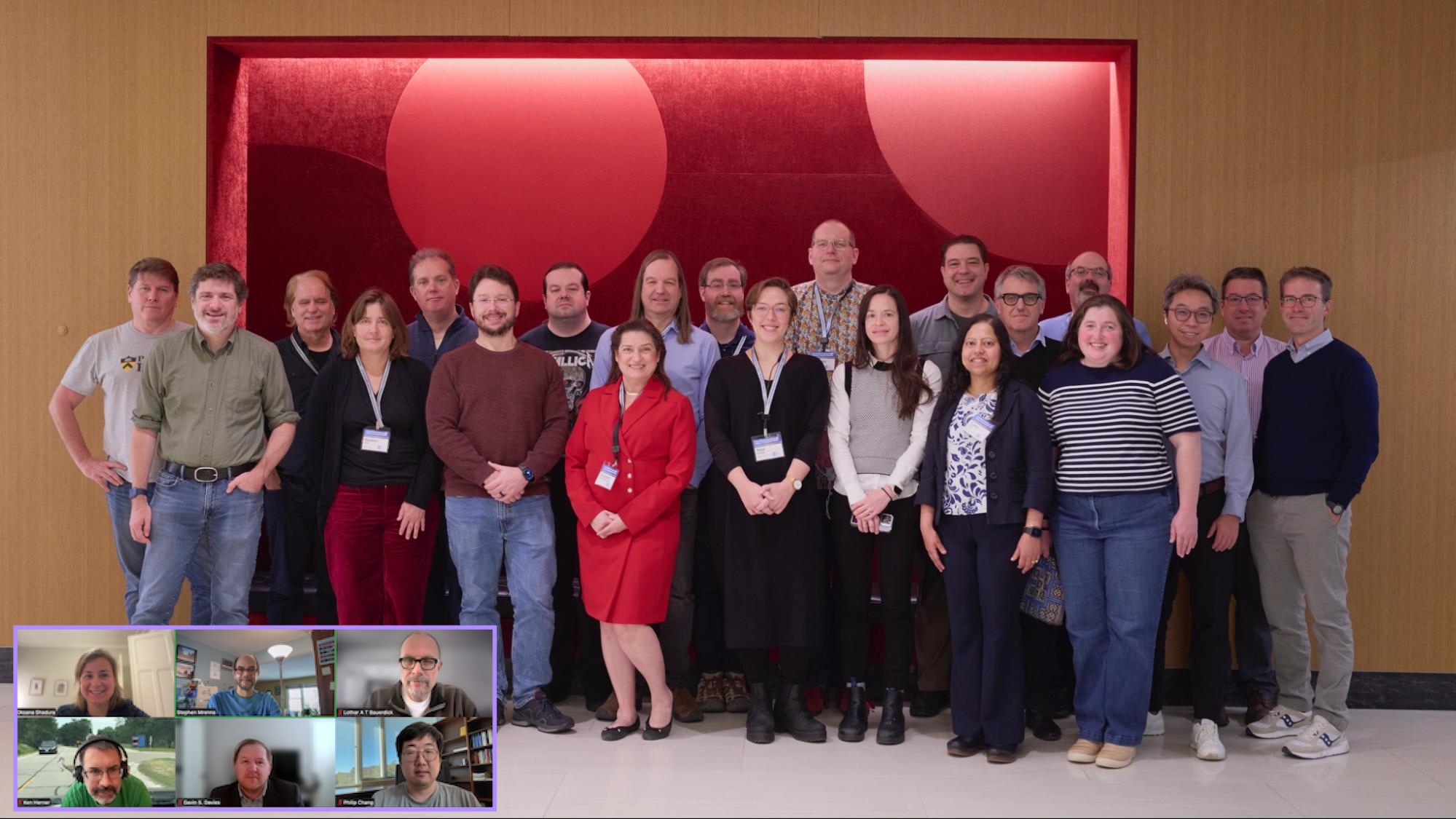
In December 2025, IRIS-HEP convened a landmark workshop in Washington, DC, bringing together the high-energy physics community to coordinate software and computing R&D efforts in preparation for the HL-LHC and future experiments, with discussions spanning AI integration, shared software ecosystems, and green computing.
Next-Generation Researchers for Next-Generation Physics: The Fellows Program at IRIS-HEP, an Institute Focused on Software
09 December 2025
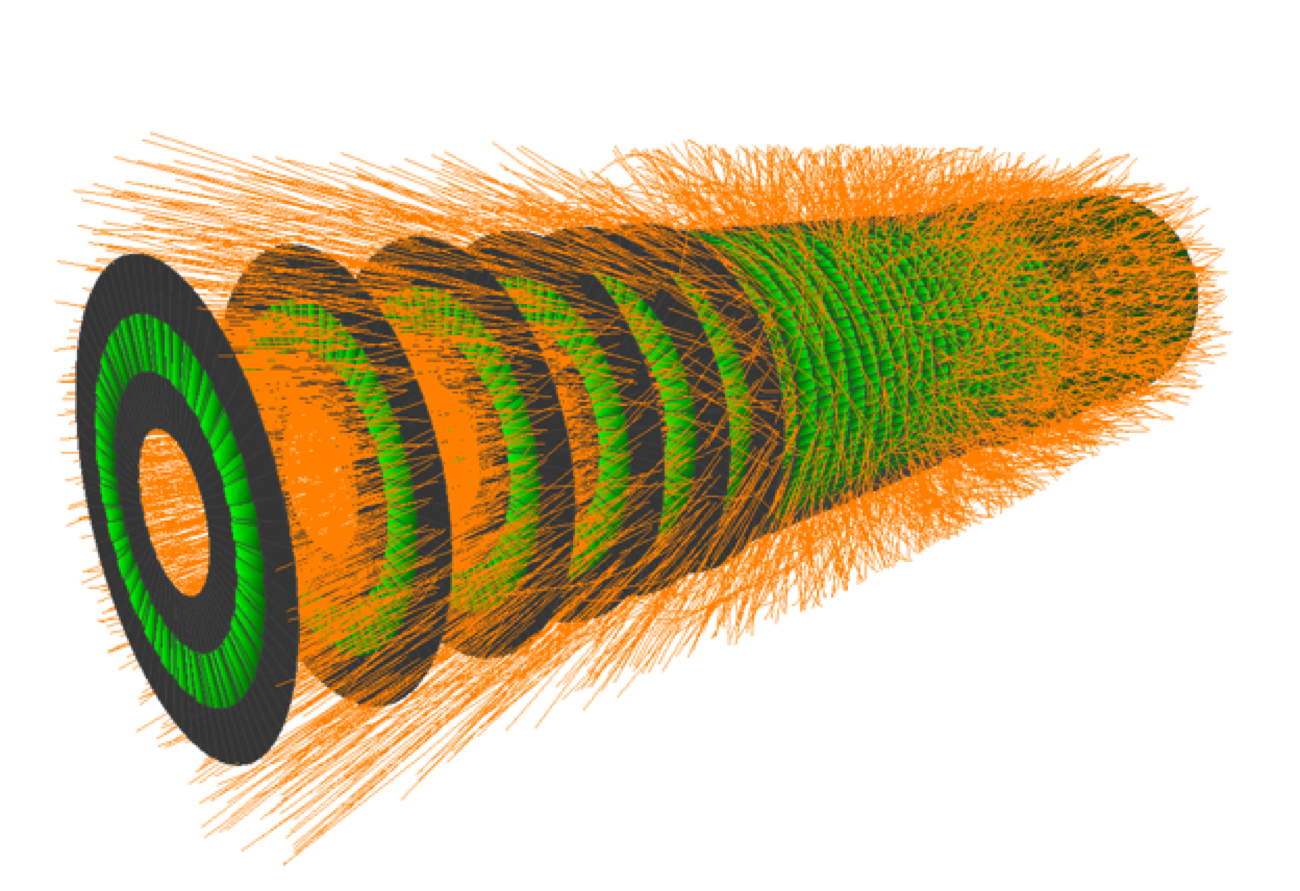
The IRIS-HEP Fellows Program develops the next generation of computational physicists through mentored research projects that build advanced software for the HL-LHC, providing students with hands-on training, professional development, and entry into a global research community.
Accelerating Discovery at the Revamped Large Hadron Collider with Unprecedentedly Fast Data Flow
12 June 2025
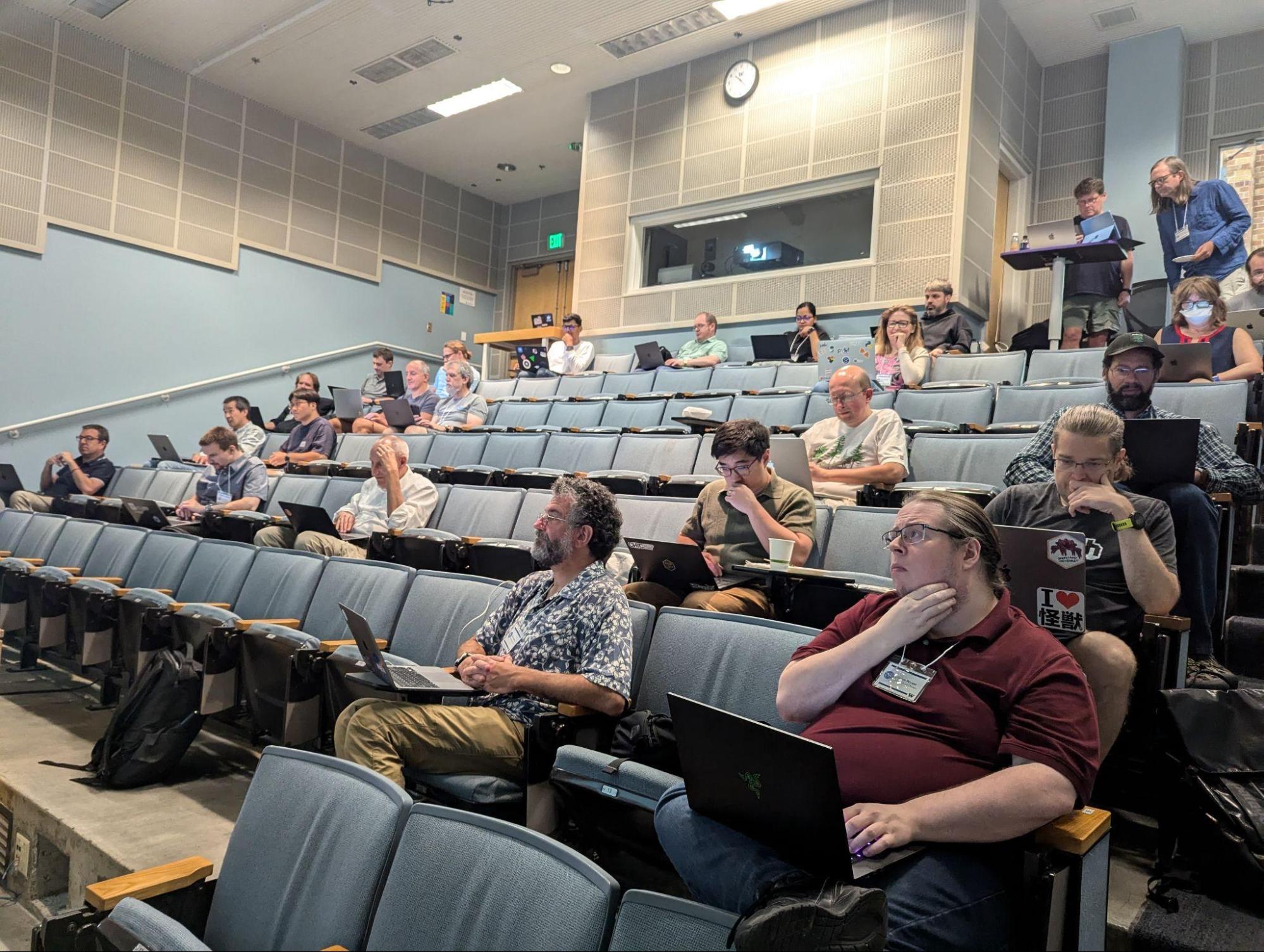
A look at the 200 Gbps data challenge conducted during the 2024 IRIS-HEP retreat, exploring advances in distributed data access and analysis for high-energy physics.
2025 Call for IRIS-HEP Fellows Applications
27 February 2025
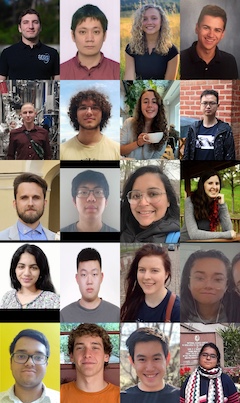
“2025 IRIS-HEP Fellows Program is open for applications”
2025 Call for IRIS-HEP Fellows Projects and Mentors
13 February 2025
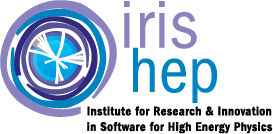
“2025 Call for Projects and Mentors for IRIS-HEP Fellows Program”
Empowering Discoveries in High-Energy Physics: Elliott Kauffman and IRIS-HEP
14 January 2025
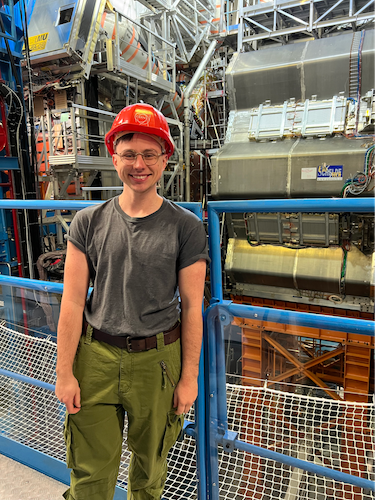
“This story is the third in a series about gap year IRIS-HEP fellows and how the program has helped shape their careers.”
Blazing a Career Path in Computer Science: Yuka Ikarashi and IRIS-HEP
24 October 2024
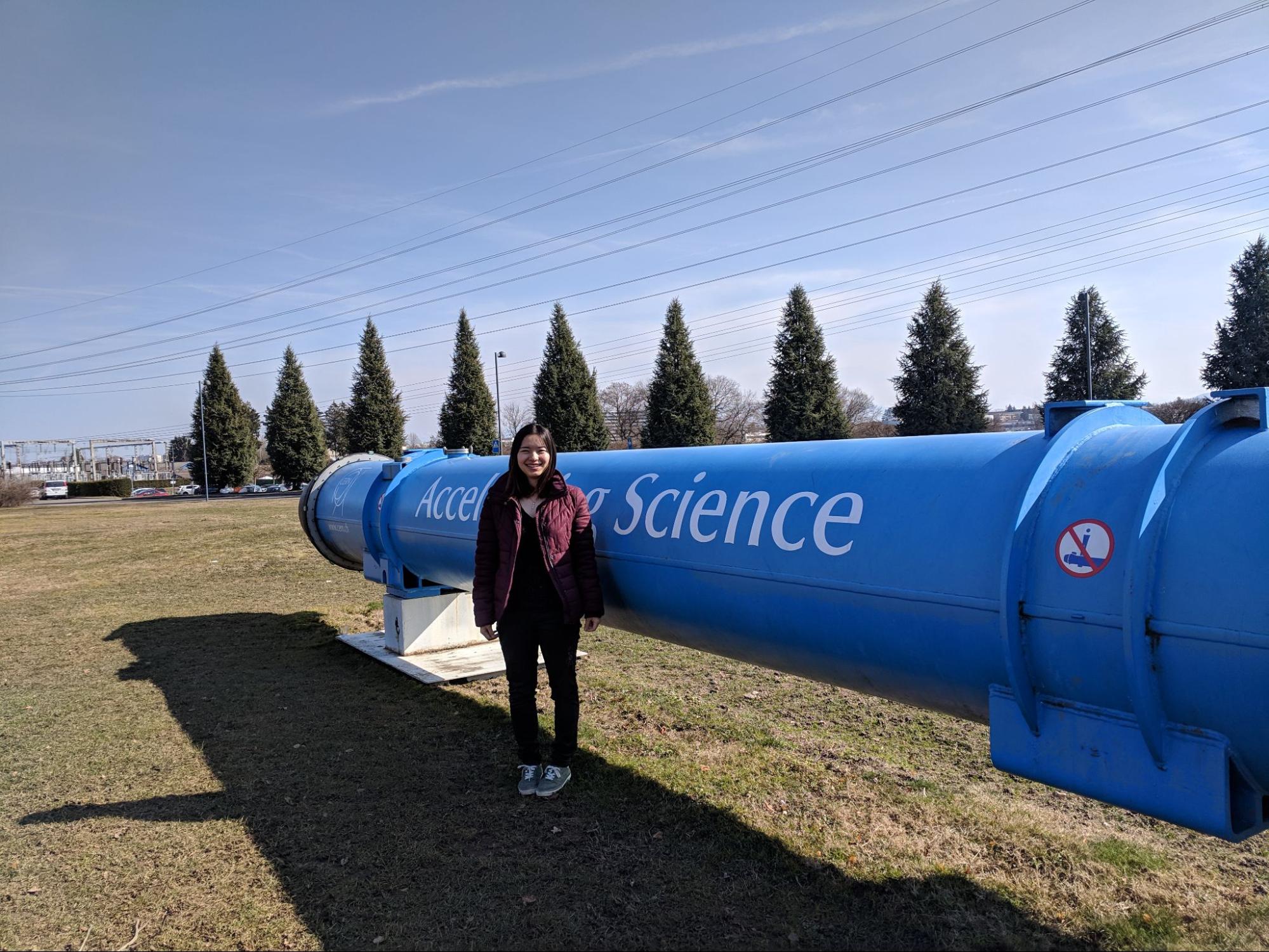
“This story is the second in a series about gap year IRIS-HEP fellows and how the program has helped shape their careers.”
Discovering a Passion for Software Engineering: Manasvi Goyal and IRIS-HEP
19 September 2024
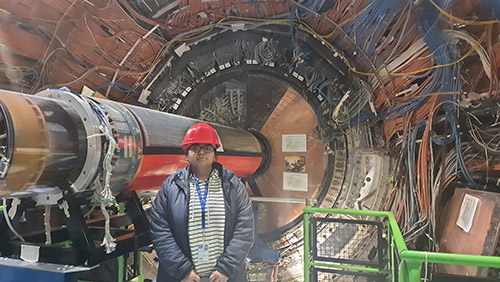
“This story is the first in a series about gap year IRIS-HEP fellows and how the program has helped shape their careers.”
IRIS-HEP Receives $25M Funding for Another Five Years of Research
11 January 2024
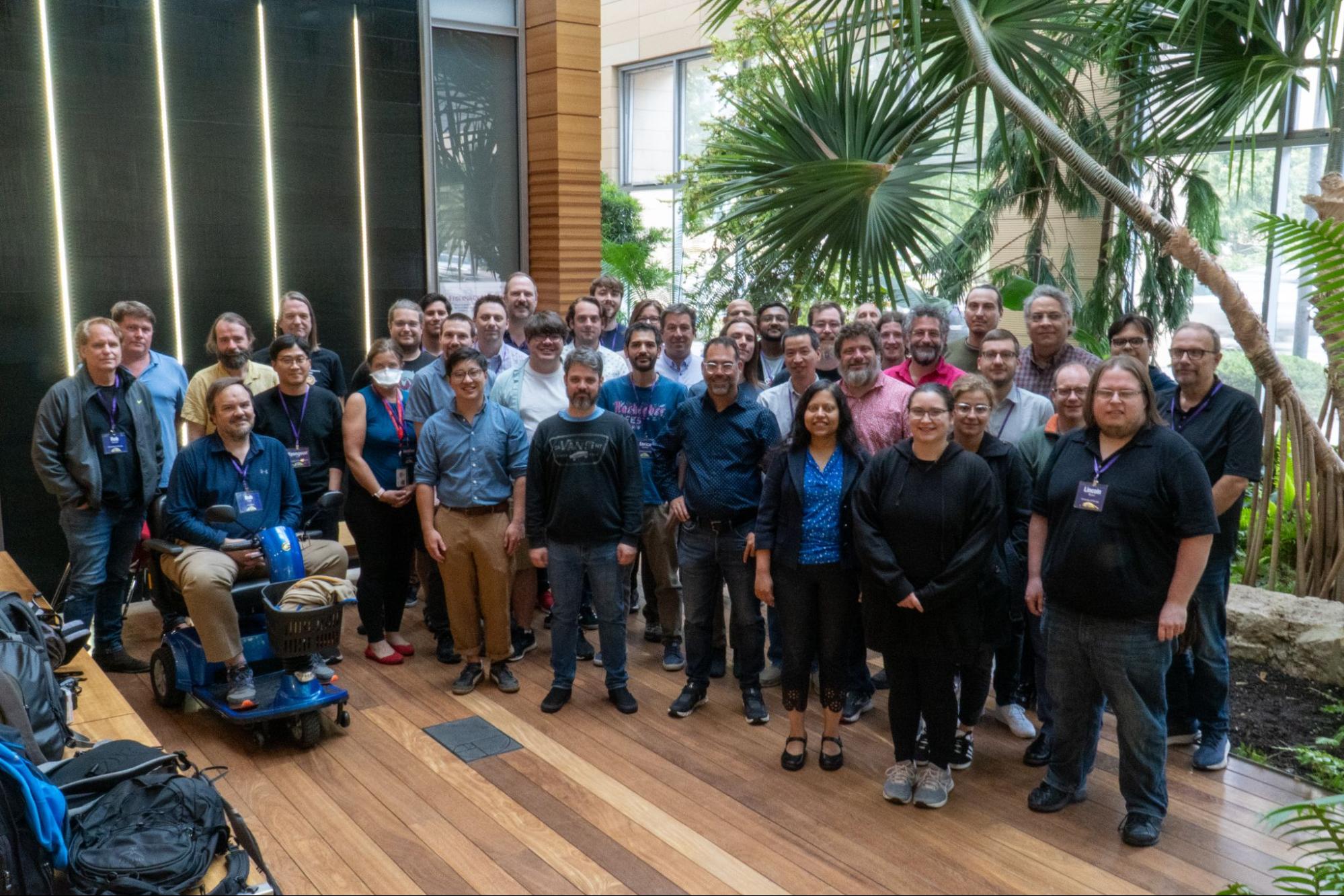
“IRIS-HEP received funding from the Office of Advanced Cyberinfrastructure and the Physics Division at the National Science Foundation for five years.”
Out of harm’s way: Physics research program supports Ukrainian students displaced by war
12 September 2023
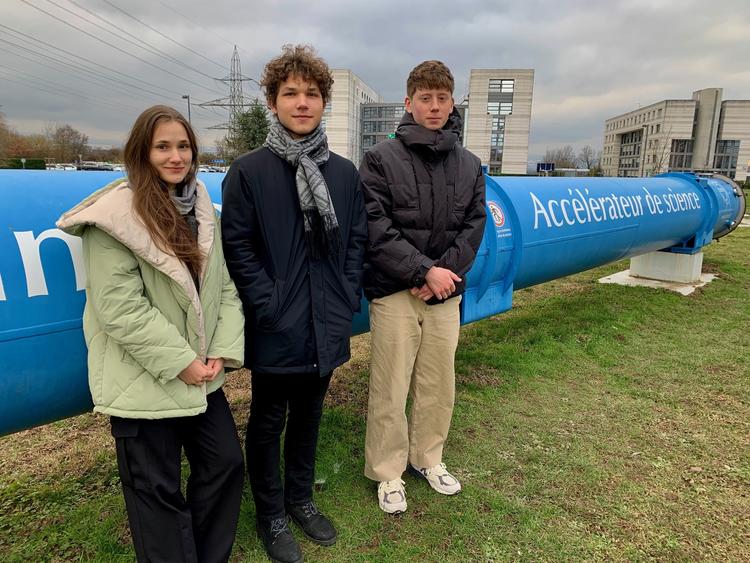
“Ukrainia students escape the war and pursue research at the Large Hadron Collider (LHC), under supervision from Princeton University faculty.”
High energy physicists gather at Princeton for computational training programs
07 September 2023
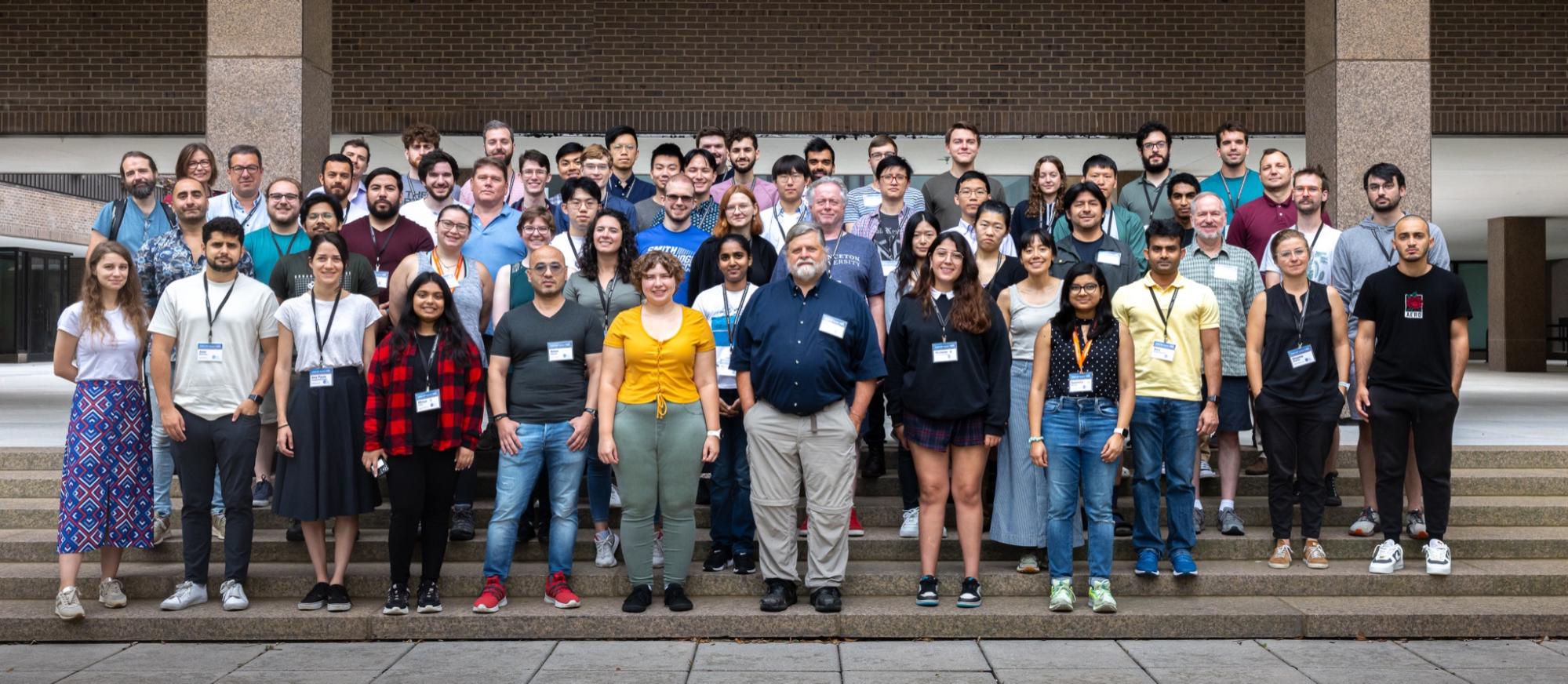
For the fifth year, a group of high energy physicists ranging from undergraduates to post-doctoral researchers traveled to the Princeton University campus this summer to participate in the Computational and Data Science for High Energy Physics, or CoDaS-HEP.
Spotlight: IRIS-HEP Fellows
26 June 2023
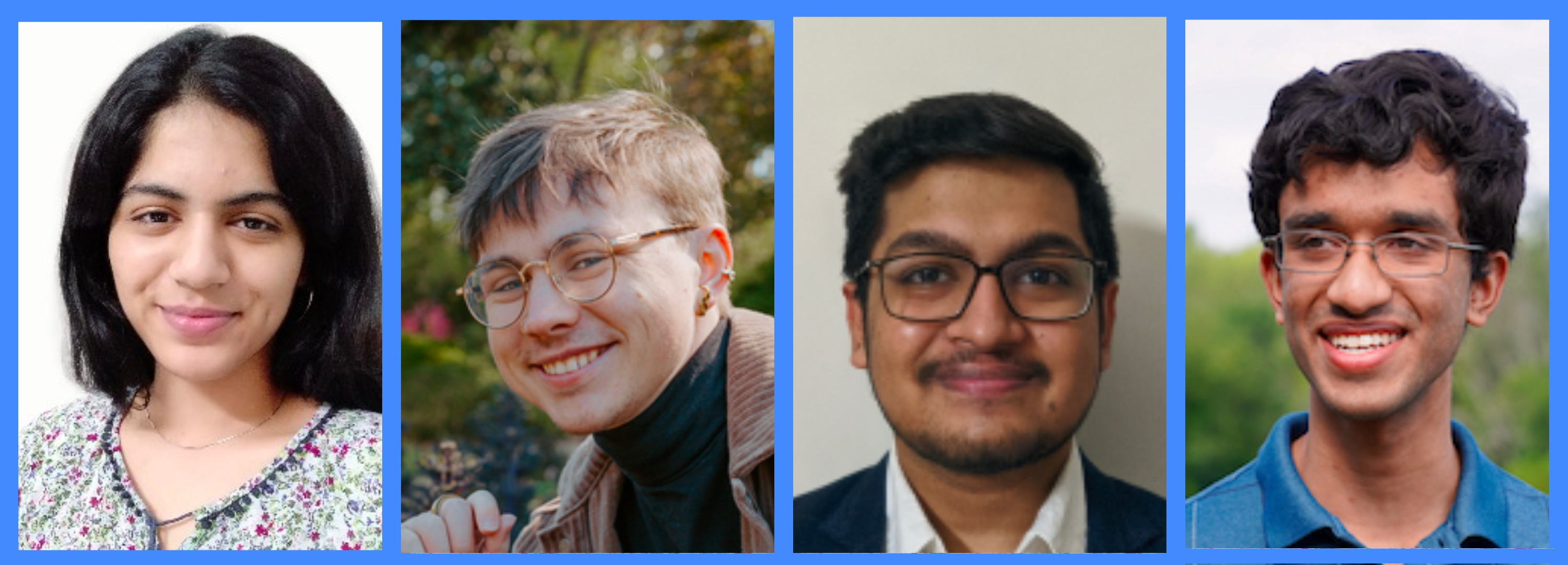
Some recent IRIS-HEP fellows on what they learned during their time with the software collaboration, what they’re up to now, and why they’d recommend the IRIS-HEP fellowship to other up and coming researchers in the field.
IRIS-HEP: Training a new generation of computational and data science researchers in high energy physics
13 April 2023
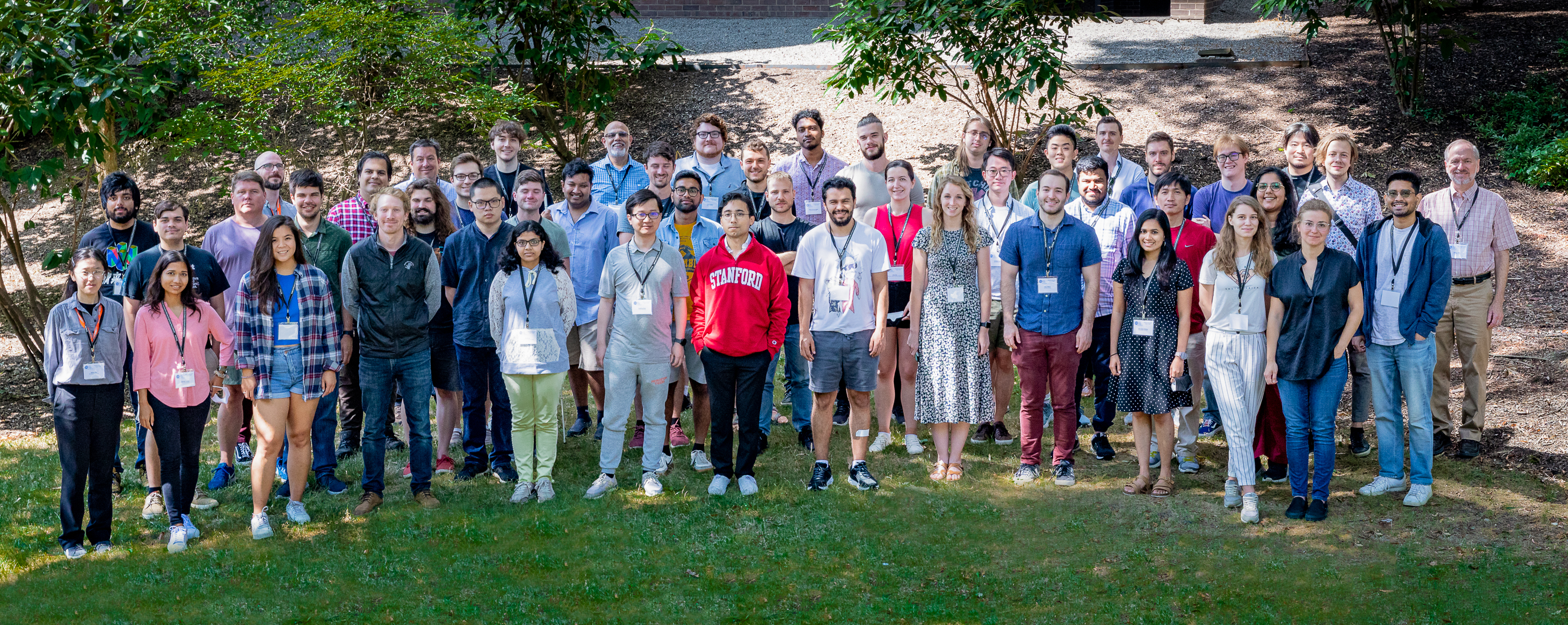
Overview of IRIS-HEP efforts to train future generations of physicists to have proficiency in software.
ACTS: One software for all
23 March 2023
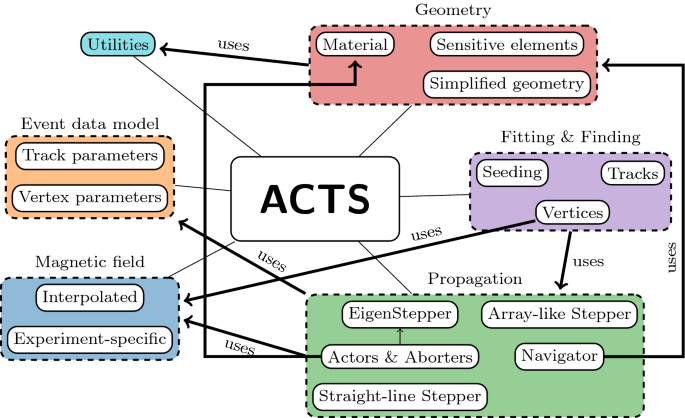
At the IRIS-HEP collaboration, an array of researchers are working together on the ACTS project to bring fast and efficient software to experiments of all sizes, including those which may not have had access to advanced software otherwise.
Developing an inclusive space for women in software at IRIS-HEP
27 January 2023
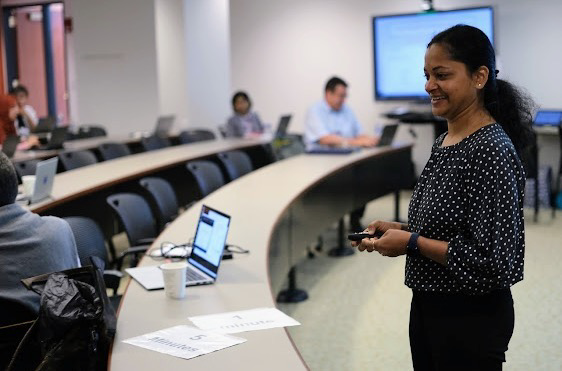
At the IRIS-HEP collaboration, the current and next generation of women in software development are working together toward the future of high energy particle physics.
Pattern-Recognition Experts Connect the Dots at Princeton
31 May 2022
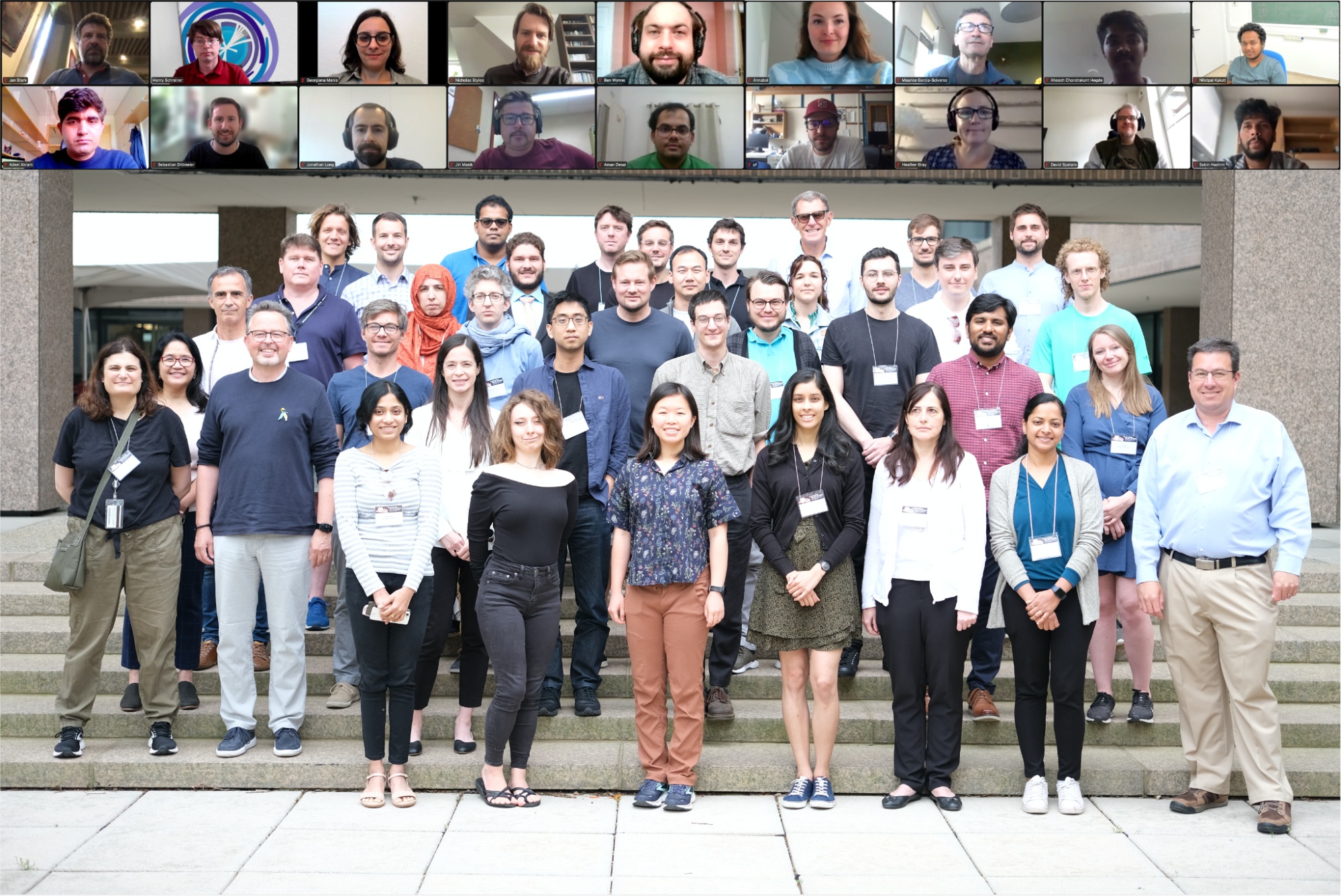
The Connecting the Dots workshop brings track reconstruction experts together with other machine-learning specialists.
IRIS-HEP executive board member Kyle Cranmer to lead University of Wisconsin–Madison's data science institute
02 May 2022
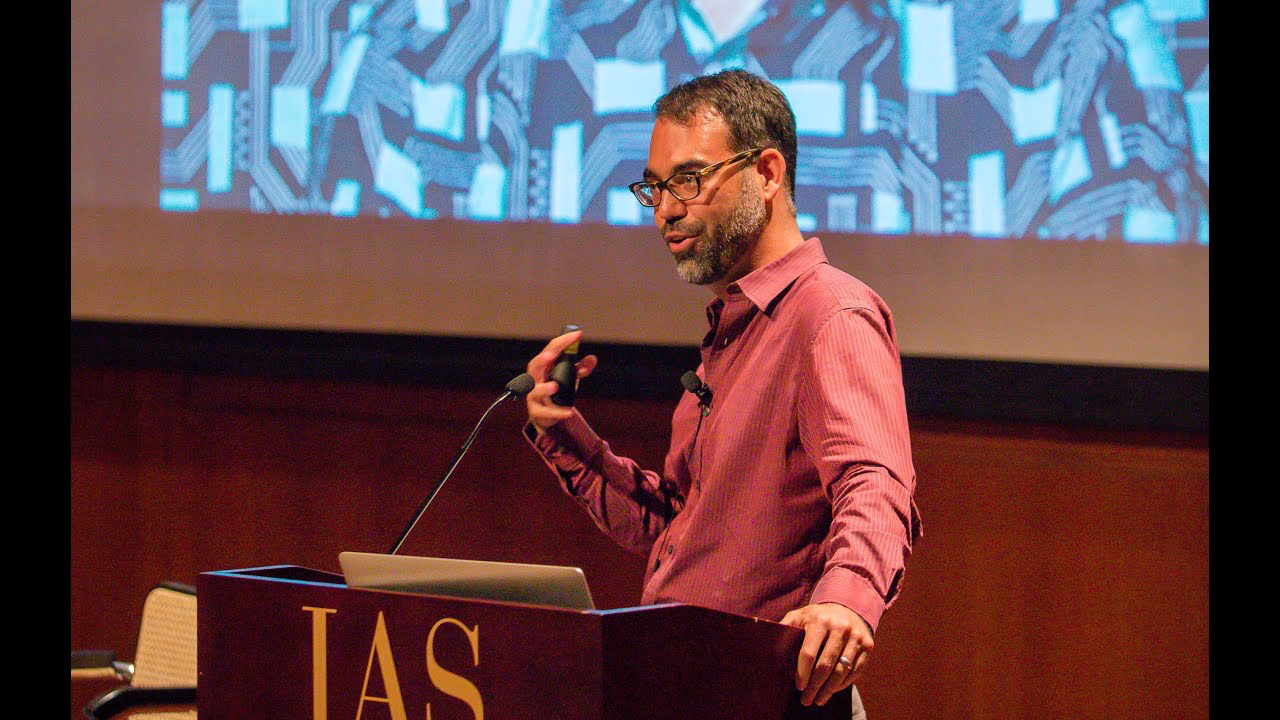
Cranmer aims to foster collaboration between scientific disciplines while addressing machine learning’s impacts on society’s most vulnerable members.
Team Member Spotlight: Irina Espejo
11 February 2022
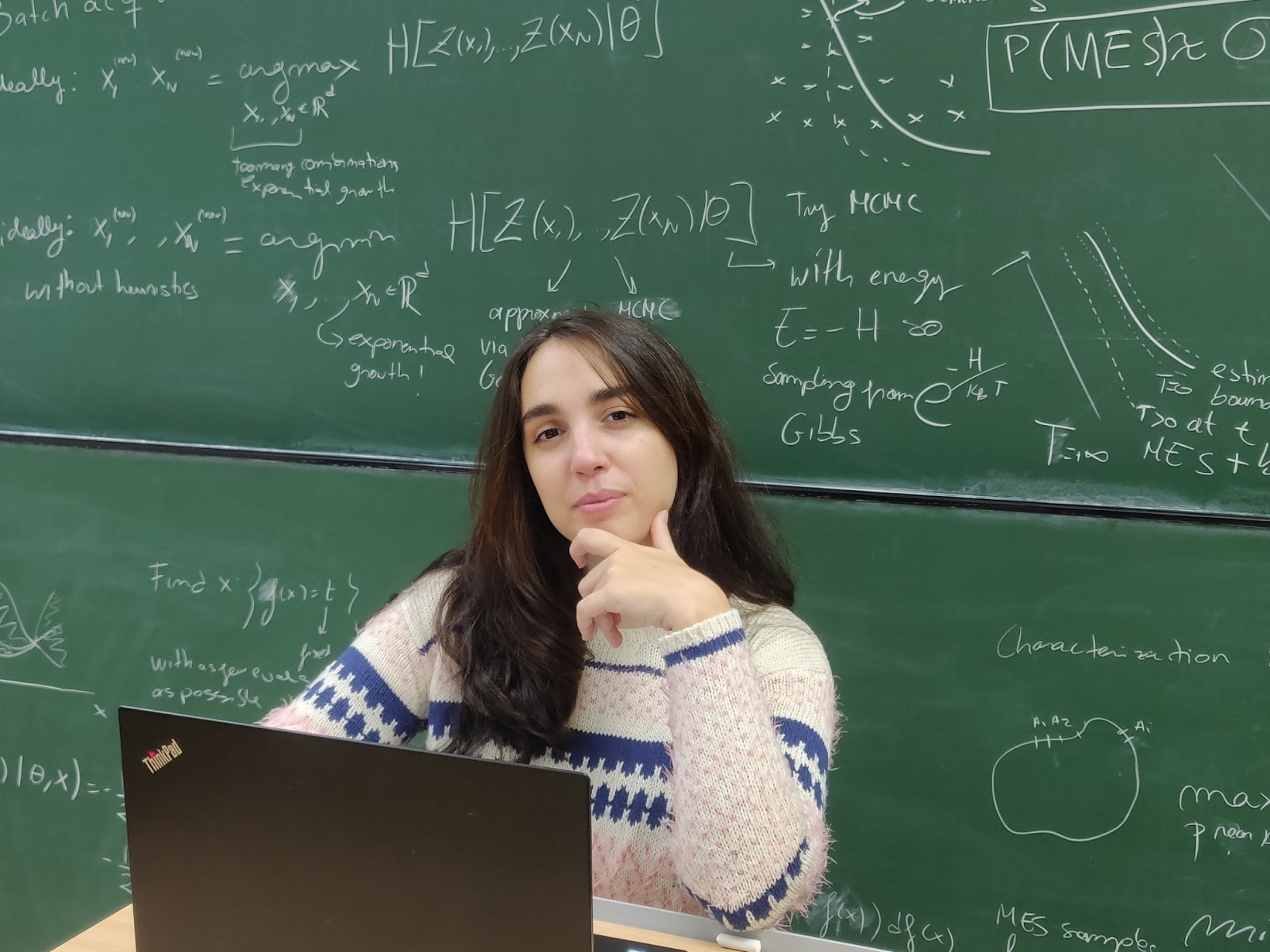
Irina Espejo, a New York University PhD candidate in data science and IRIS-HEP member, continually seeks to answer science’s most fundamental questions.
IRIS-HEP collaborator Frank Würthwein named director of San Diego Supercomputer Center
08 February 2022
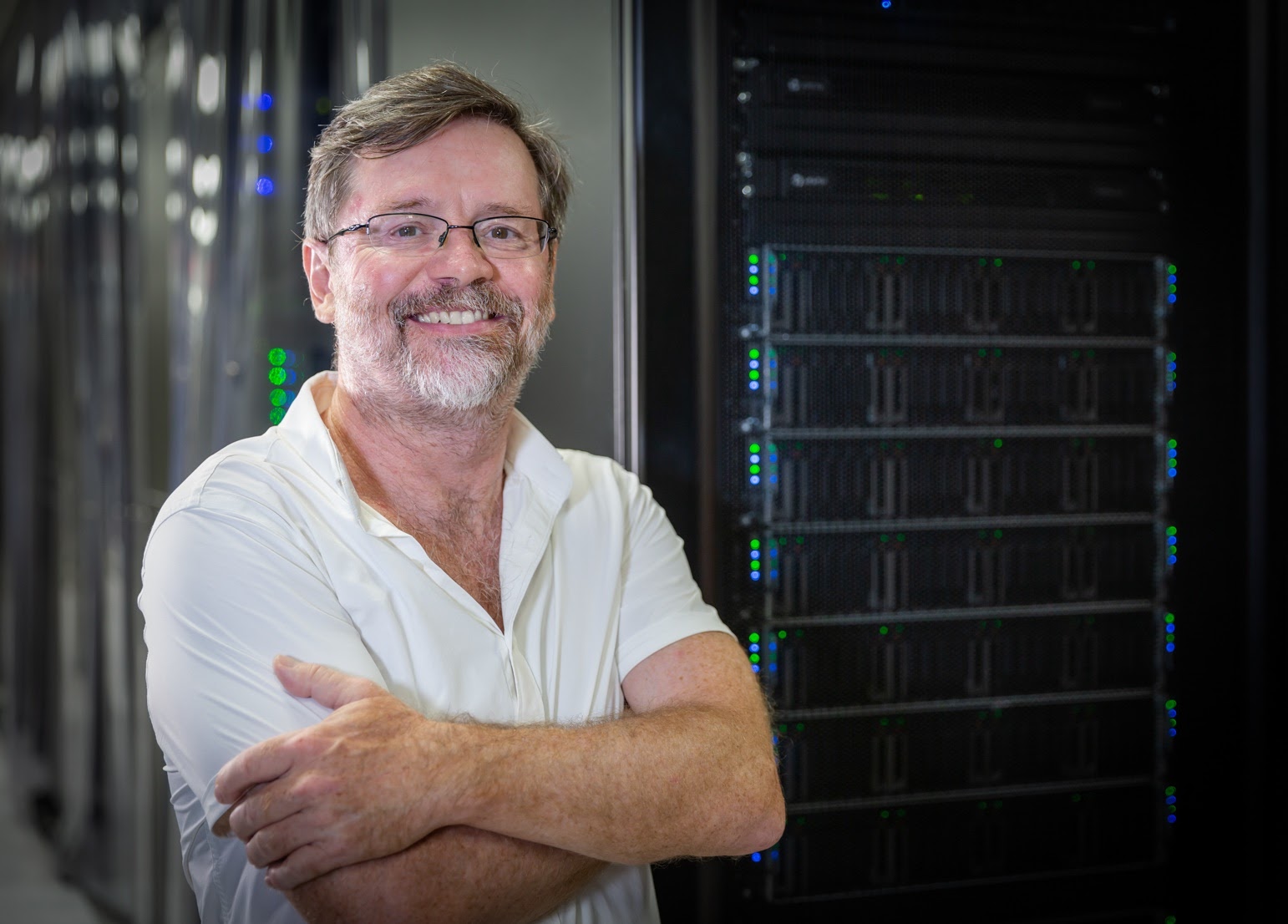
The particle physicist and IRIS-HEP executive board member describes the center’s mission as “translating innovation into practice”
Team Member Spotlight: Mason Proffitt
04 January 2022
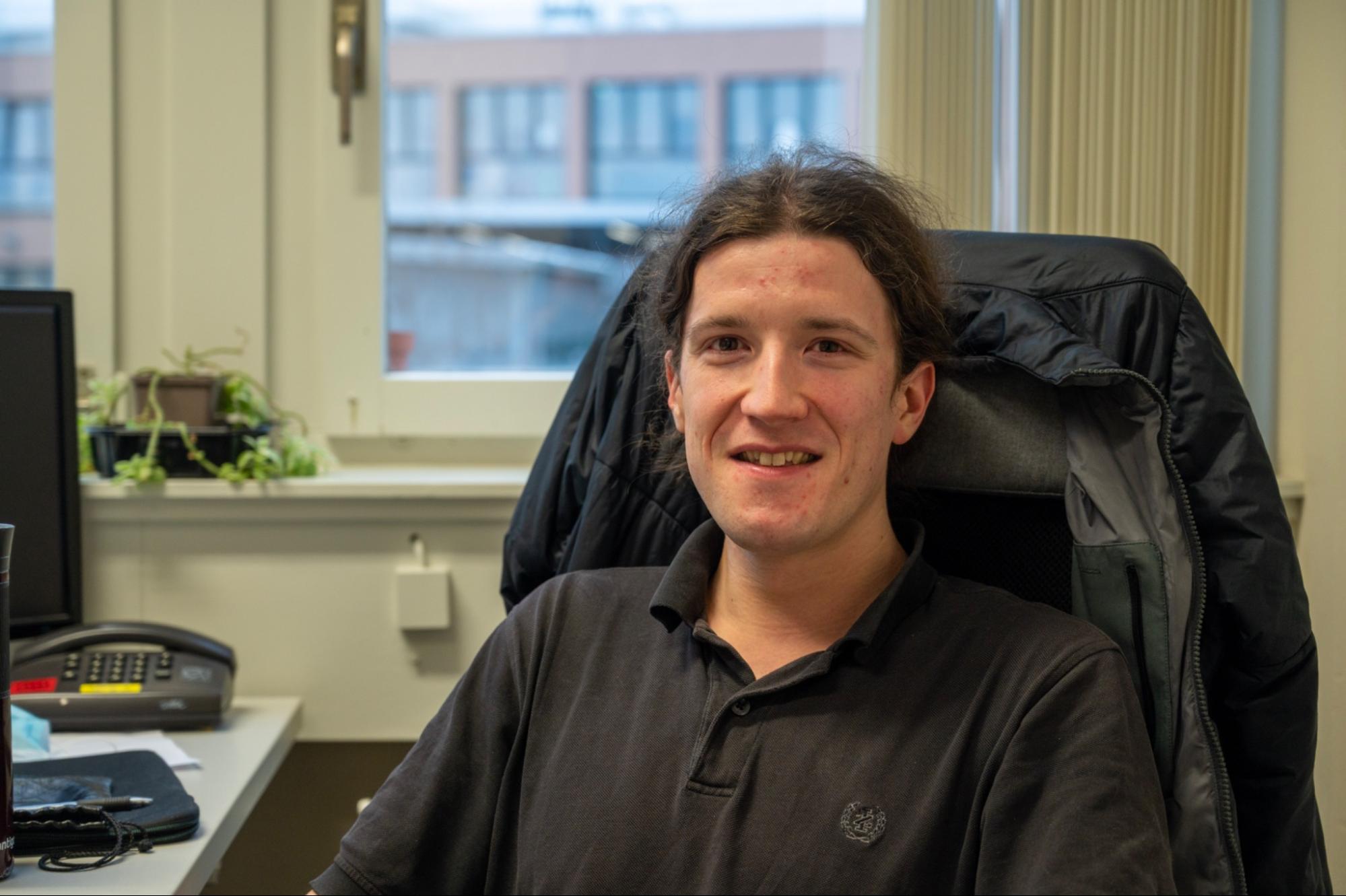
Highlights the work of Mason Proffitt, a PhD student in the University of Washington’s physics department and a member of IRIS-HEP.
Team Member Spotlight: Henry Schreiner
15 September 2021
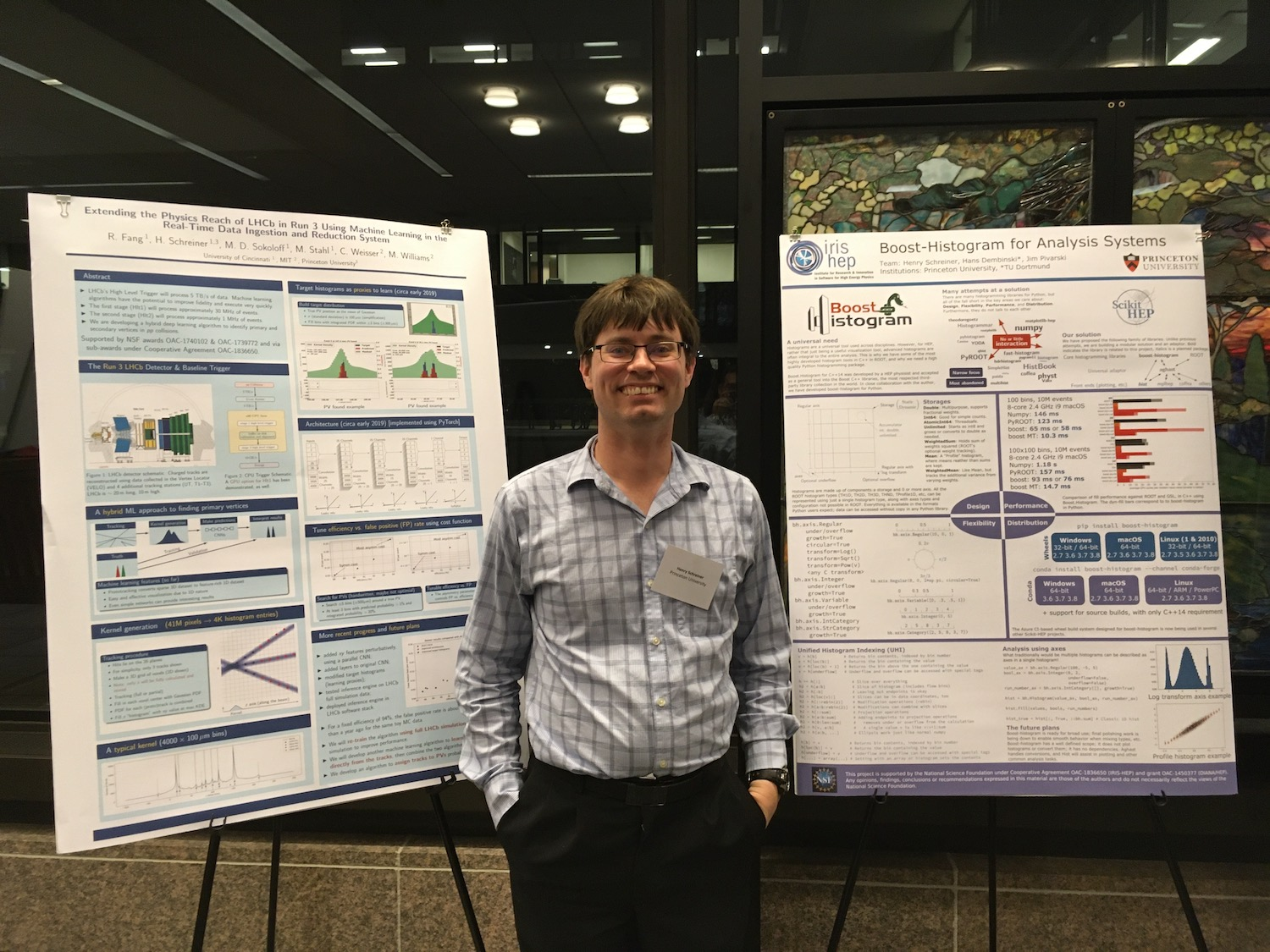
Highlights the work of Henry Schreiner, a computational physicist and research software engineer with IRIS-HEP.
Deep learning, fast hardware to drive search for new physics
20 July 2021
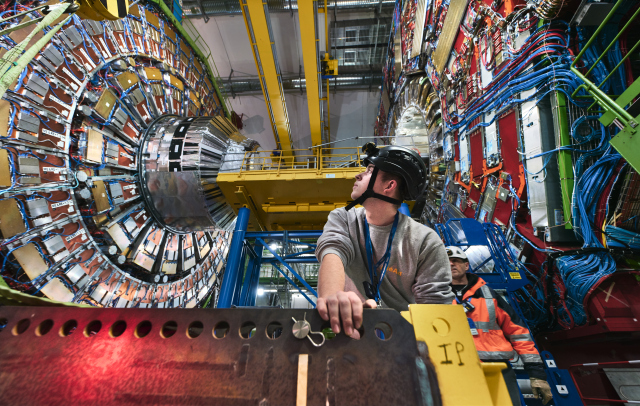
Fast electronics and artificial intelligence are helping physicists capture data and decide what to keep and what to throw away.
Building a career path for research software engineers
12 May 2021
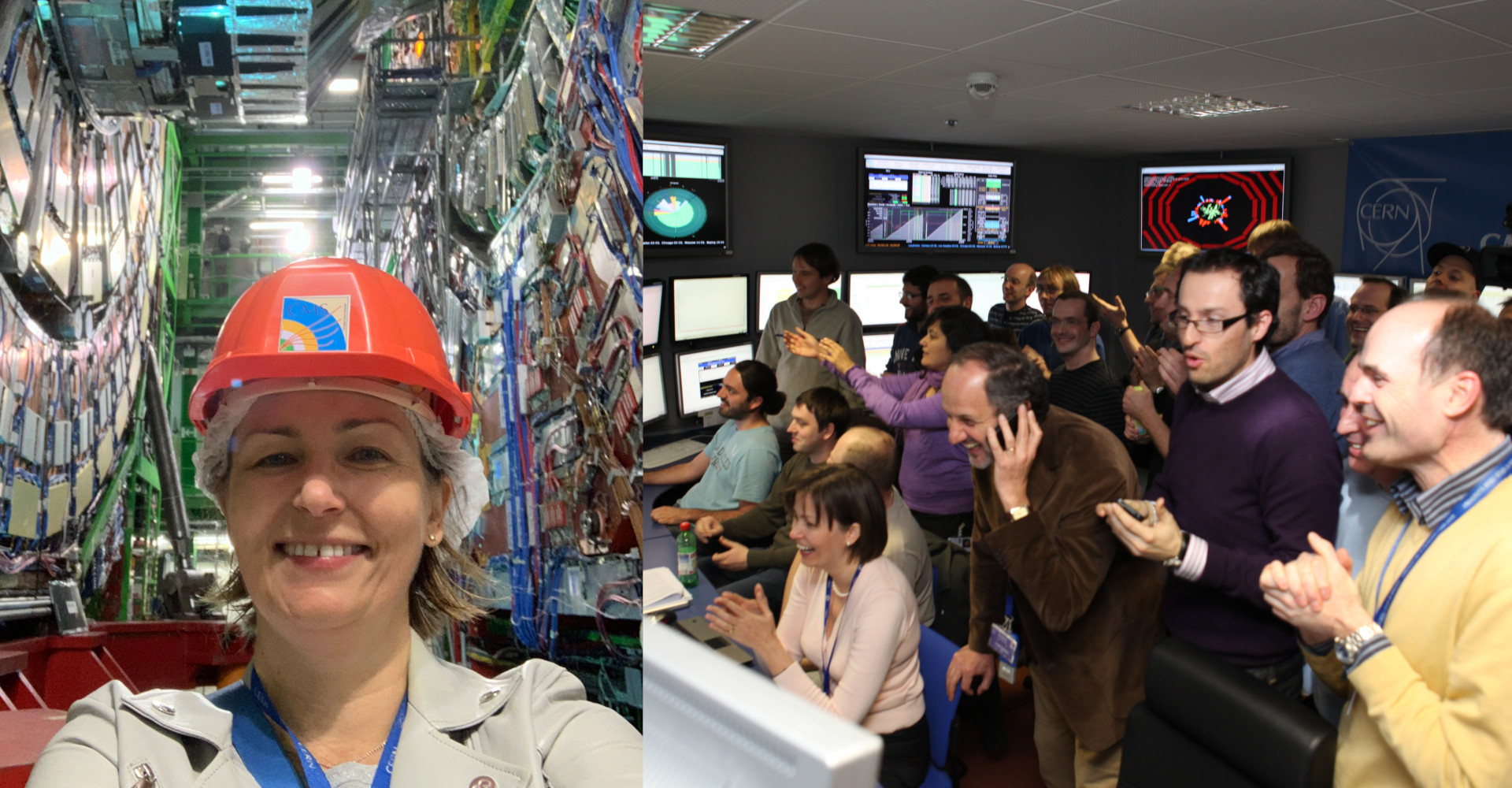
Software is now fundamental to scientific research. Until recently, the people who build it have lacked recognition.
High-energy physics opens its doors to the exabyte era
10 April 2021
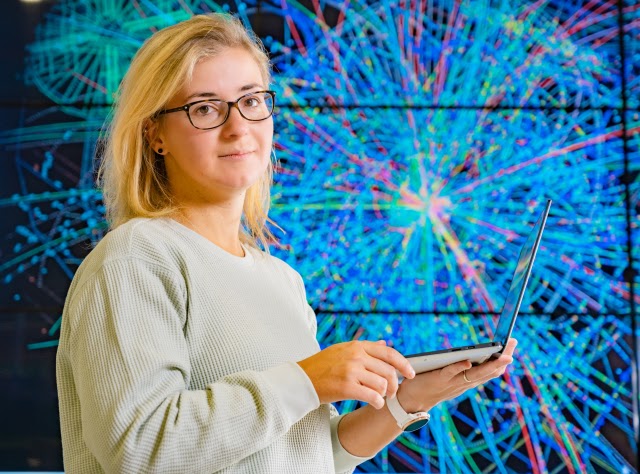
As the high-energy physics community prepares for the High-Luminosity LHC, new data science challenges await.
In the future, it will all be online: IRIS-HEP adapts training and outreach for the pandemic
30 November 2020
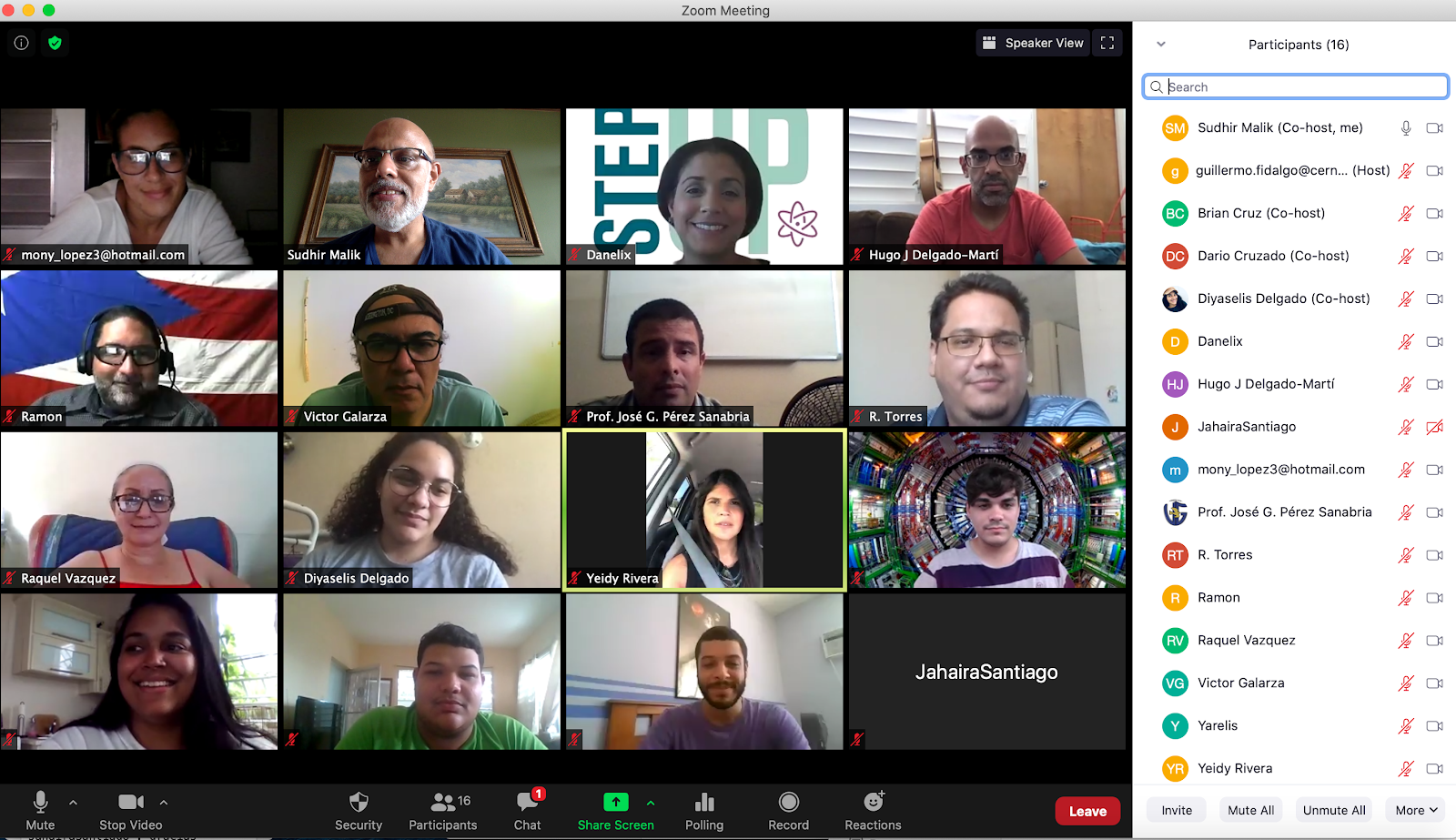
Training for IRIS-HEP has been online over this last year, providing challenges, but opening up new opportunities and benefits not previously possible.
Software Sustainability & High Energy Physics Blueprint Workshop
14 October 2020
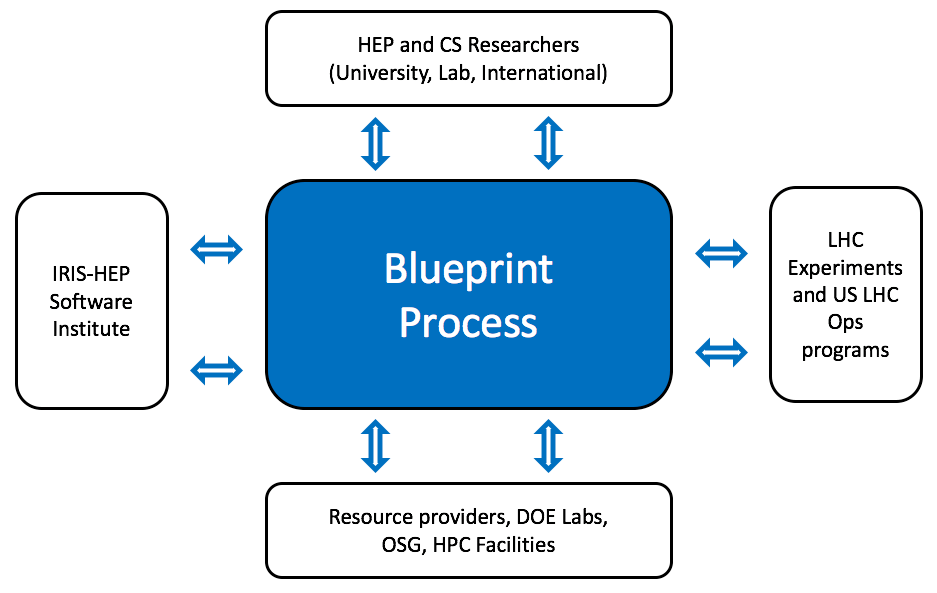
On July 22, about 80 researchers interested in both sustainable software and high energy physics gathered virtually to talk about how the high energy physics community could make its software more sustainable, wanting it to be easier to develop and maintain so that it remains available in the future on new platforms, meets new needs, and is as reusable as possible.
Snowmass Letters Of Interest submitted by IRIS-HEP Members
12 October 2020

Highlights the Letters of Interest submitted to the Snowmass 2021 Process.
IRIS-HEP Fellows Thrive During a Remote Summer
17 September 2020
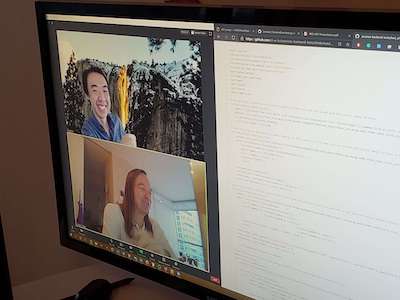
Highlights how the IRIS-HEP fellowship program has adapted to virtual work during the pandemic.
Preparing the Large Hadron Collider for a Data Deluge
07 May 2020
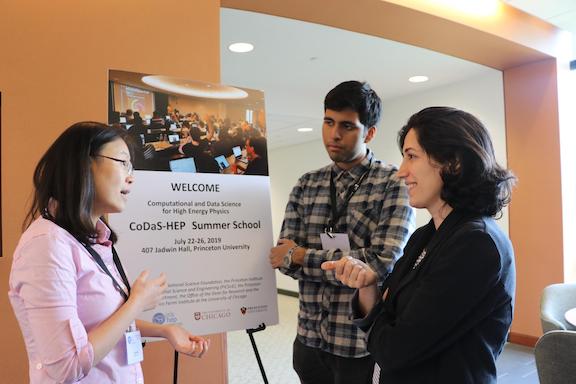
Highlights the work of research software engineer Bei Wang on making faster software for particle tracking.
IRIS-HEP Poster Session 2020 at Princeton University
27 February 2020
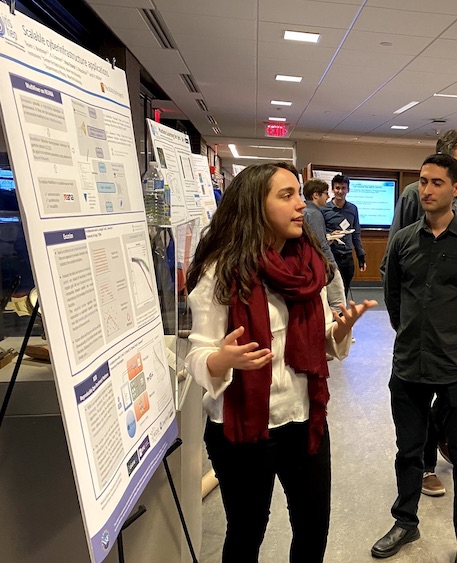
IRIS-HEP held a Poster Session at Princeton University on February 27, 2020, to highlight the work of members from the first 18 months of IRIS-HEP.
Analysis Preservation Bootcamp
17 February 2020
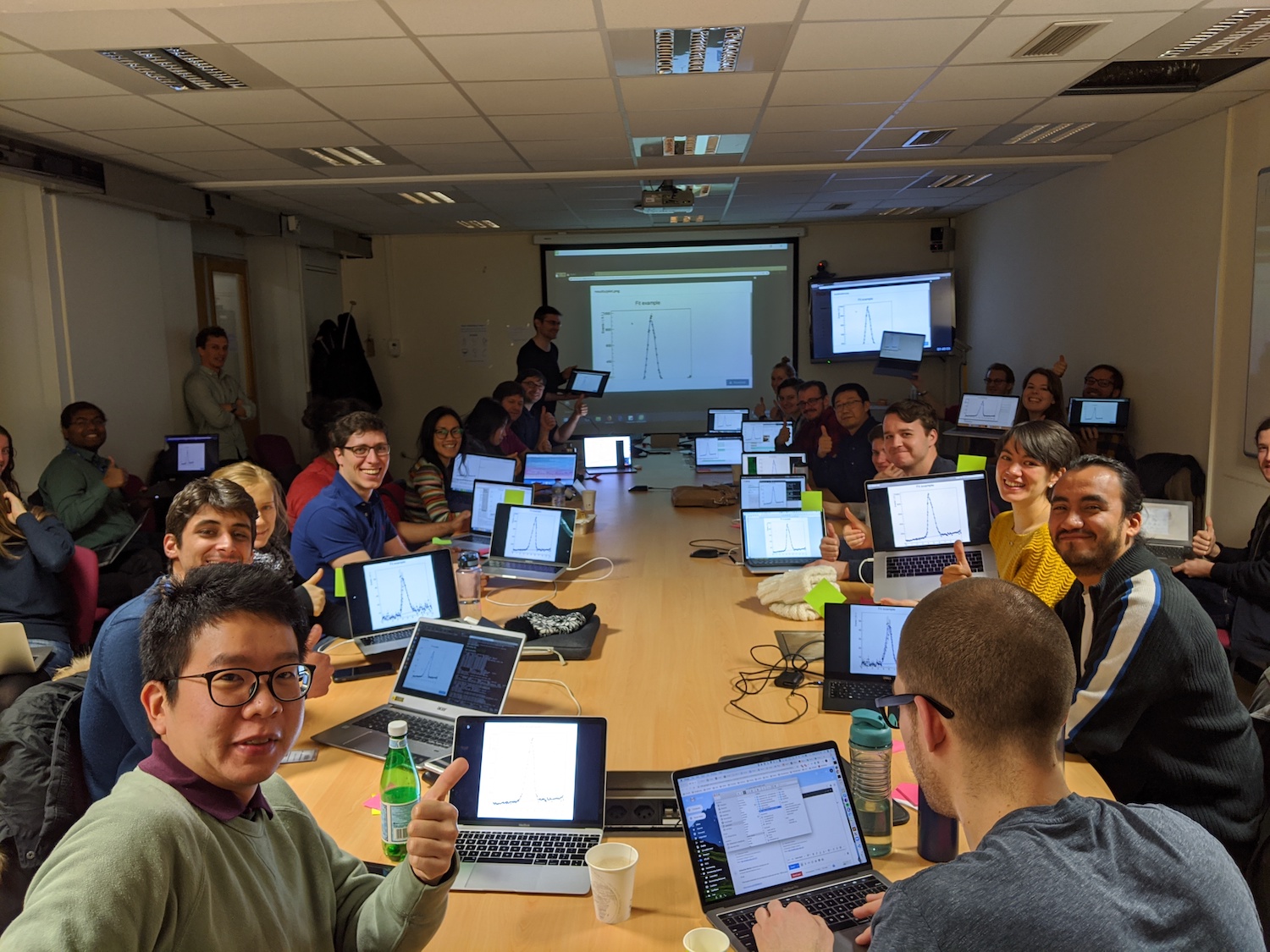
The first Analysis Preservation Bootcamp was held at CERN from February 17-19, 2020. Thirty graduate students and postdocs learned these new technologies aimed at ensuring reproducibility, streamlining onboarding, and extending the impact of LHC analyses through reuse.
Machine Learning for Jet Physics Workshop (ML4Jets)
17 January 2020
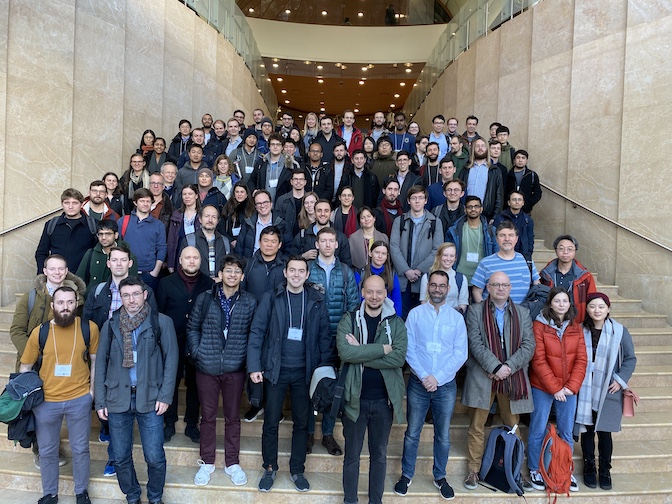
NYU Hosted the third in a series of workshops focusing on Machine Learning for Jet Physics from January 15-17, 2020. The event drew more than 100 participants including experimental physicists, theoretical physicists, computer scientists, and applied mathematicians. IRIS-HEP members Kyle Cranmer and Sebastian Macaluso were the local organizers.
Workshop on Accelerated Machine Learning and Inference (FastML)
11 September 2019
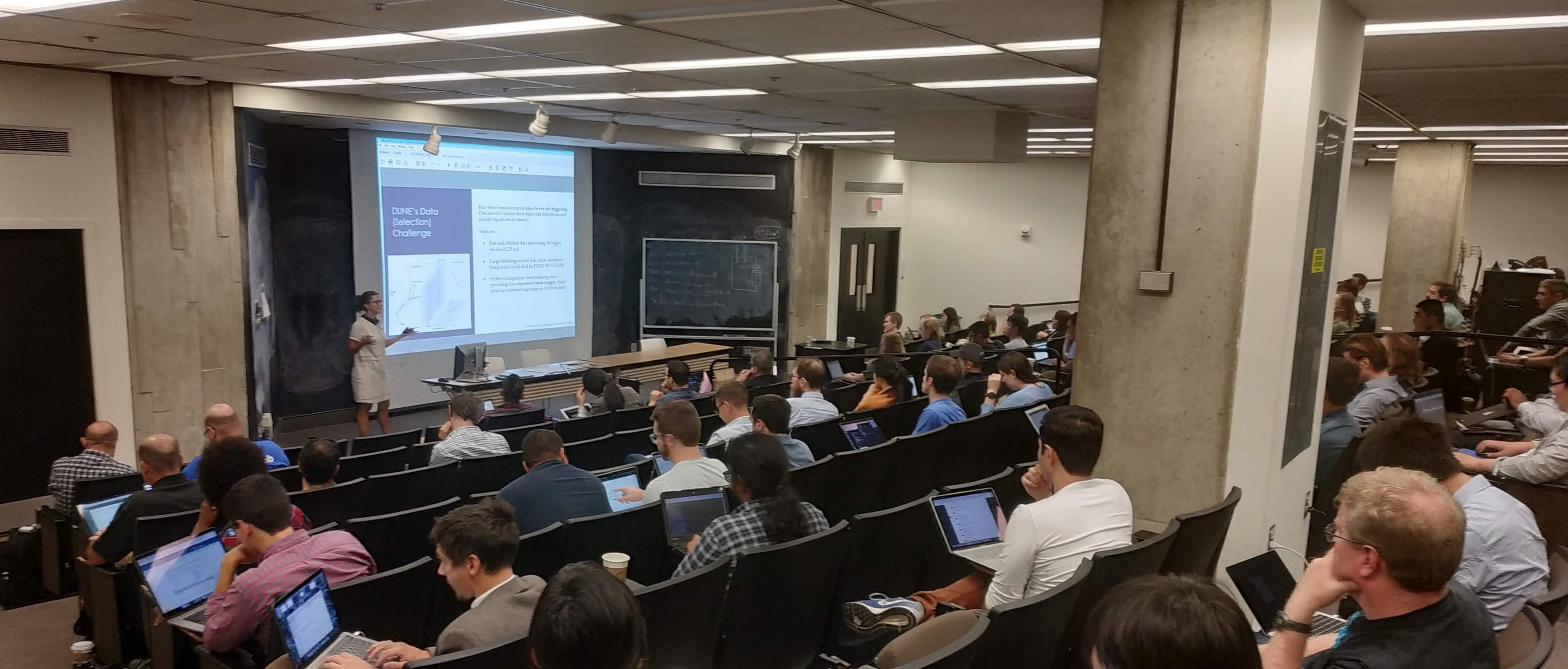
From September 10-11 at Fermi National Accelerator Laboratory (Fermilab), over 200 scientists gathered for a workshop to explore ultrafast deep learning algorithms and inference technologies, as well as the strategies driving cutting-edge ML for high energy physics.
First USATLAS Bootcamp held in coordination with Software Carpentries and IRIS-HEP/FIRST-HEP
23 August 2019
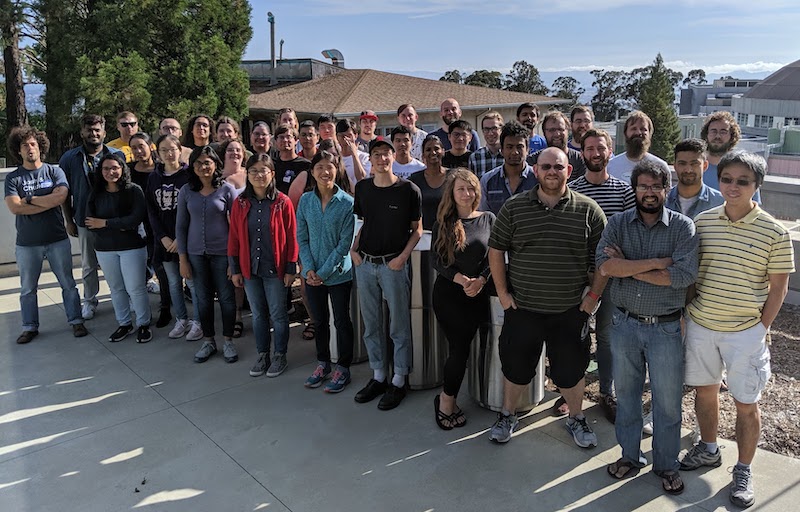
The first USATLAS Bootcamp was a huge success. 31 students and more than 8 instructors met at the Lawrence Berkeley National Laboratory to cover four topics from both a general and experiment specific viewpoint.
CoDaS-HEP 2019 at Princeton University
26 July 2019
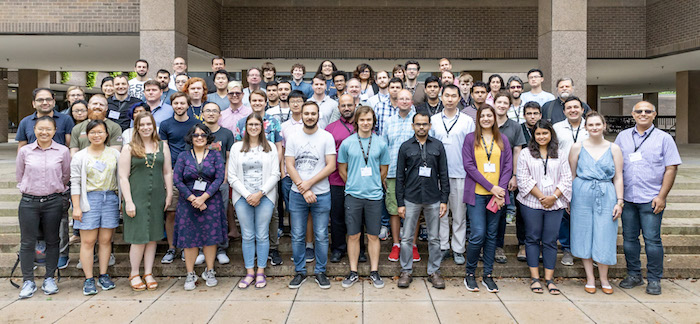 For the third consecutive summer, high energy physics graduate students, postdocs and instructors from across the United States, as well as from India, Italy and Switzerland, gathered at Princeton University to attend the school on Tools, Techniques and Methods for Computational and Data Science for High Energy Physics or CoDaS-HEP, held this year from July 22 to 26.
For the third consecutive summer, high energy physics graduate students, postdocs and instructors from across the United States, as well as from India, Italy and Switzerland, gathered at Princeton University to attend the school on Tools, Techniques and Methods for Computational and Data Science for High Energy Physics or CoDaS-HEP, held this year from July 22 to 26.
ML Hackathon at the University of Puerto Rico at Mayaguez
26 April 2019
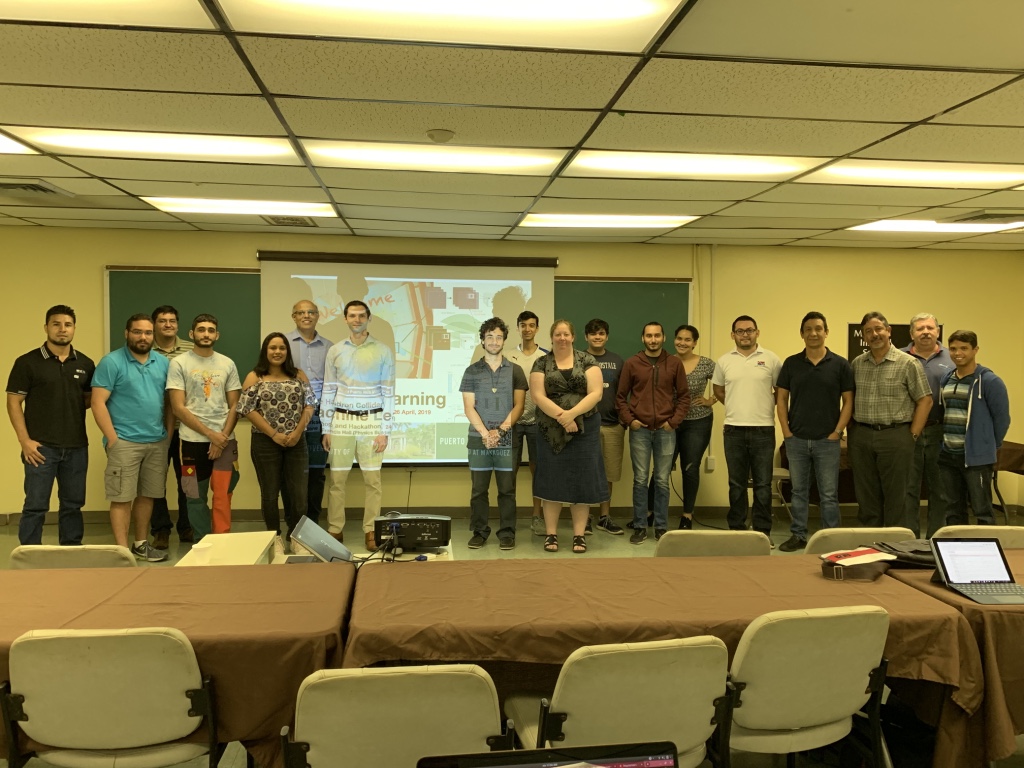 The very first Machine Learning Hackathon at the Physics Department
of the University of Puerto Rico at Mayaguez took place on 24-26
April, 2019, organized by IRIS-HEP Training, Education and Outreach
coordinator (and UPRM physics professor) Sudhir Malik.
The very first Machine Learning Hackathon at the Physics Department
of the University of Puerto Rico at Mayaguez took place on 24-26
April, 2019, organized by IRIS-HEP Training, Education and Outreach
coordinator (and UPRM physics professor) Sudhir Malik.
NSF funds IRIS-HEP project to address the massive data demands from the upgraded Large Hadron Collider
04 September 2018
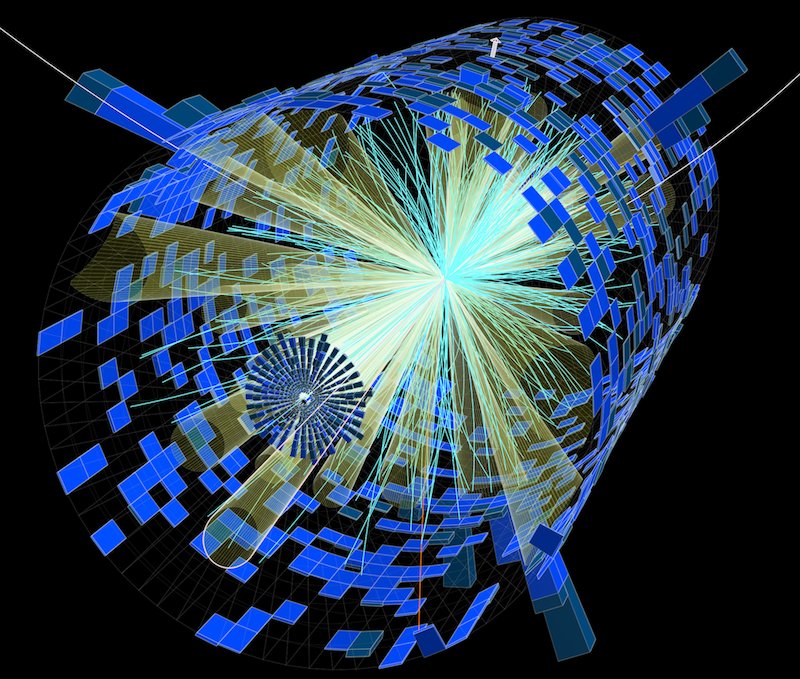 The National Science Foundation (NSF) has launched the Institute
for Research and Innovation in Software for High-Energy Physics
(IRIS-HEP), a $25 million effort to tackle the unprecedented torrent
of data that will come from the High-Luminosity Large Hadron Collider
(HL-LHC), the world’s most powerful particle accelerator.
The National Science Foundation (NSF) has launched the Institute
for Research and Innovation in Software for High-Energy Physics
(IRIS-HEP), a $25 million effort to tackle the unprecedented torrent
of data that will come from the High-Luminosity Large Hadron Collider
(HL-LHC), the world’s most powerful particle accelerator.
IRIS-HEP is pleased to see our news stories reposted on the websites of other organizations. The stories should be reposted with credits to the IRIS-HEP website and the original authors, as well as a link to the original posting. Any alterations to the text or images for the reposting should be agreed by the IRIS-HEP Communications team. Please email owner@iris-hep.org.